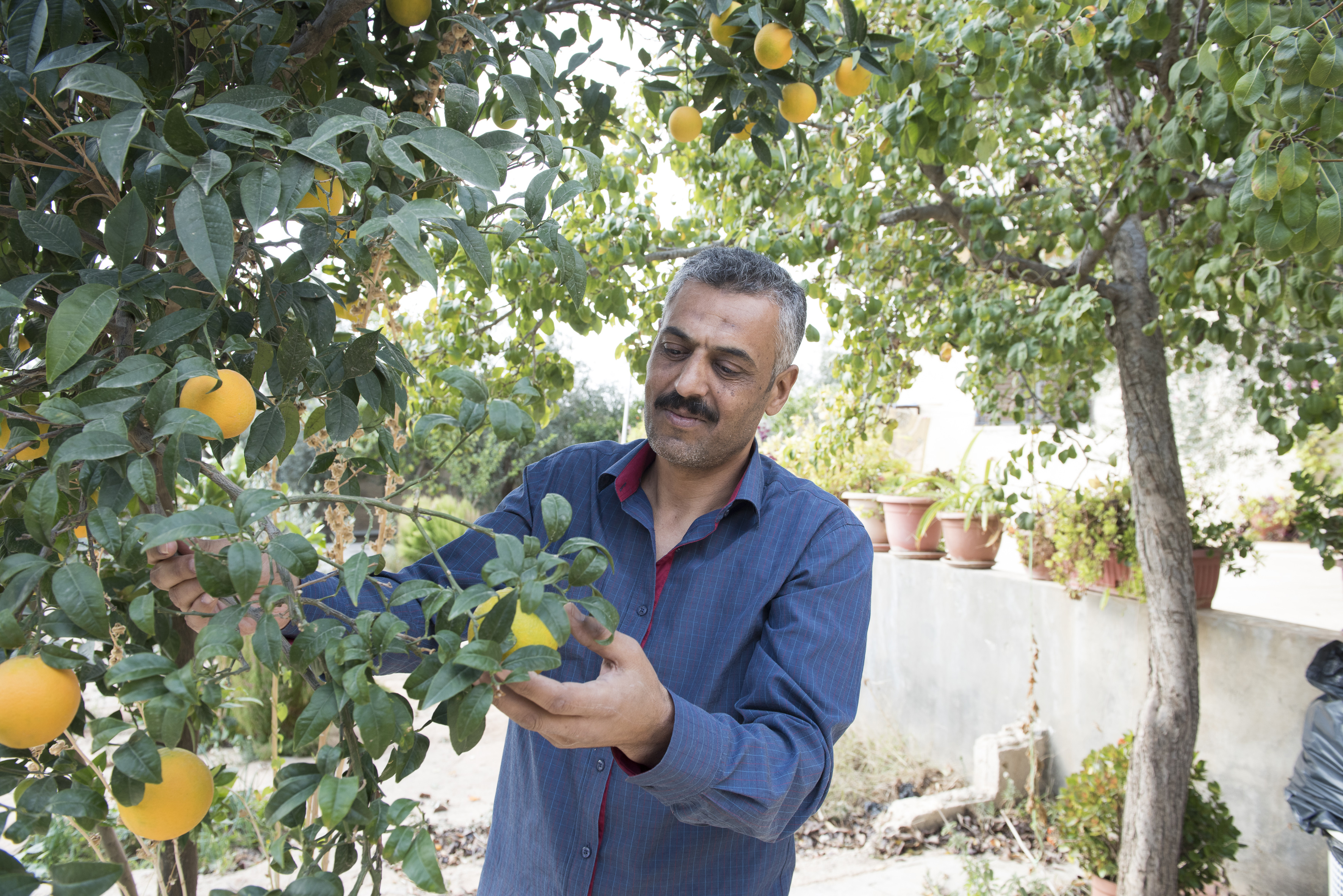Kirakunda
the student
Kirakunda studies by candle light in her shelter. ©UNHCR/Hannah Maule-ffinch
Kirakunda is a 16-year-old Congolese refugee. She is incredibly polite, well-mannered and reflects a maturity and quiet confidence behind her years.
The mud house that she lives in with her grandmother, older sister and brother is no more than 25 square meters and is divided in four small rooms. The house is impeccably clean and carefully decorated. Left of the entrance door is a sitting room. At the centre of this room is a wooden table covered with a delicate blue and white lace table cloth, an arrangement of blue and white artificial flowers in a small plastic vase sits neatly on top. Across the sitting room are two small rooms adjacent to each other, with sleeping mats laid on the floor. The fourth room of the house is the kitchen and is accessed from the outside. It has a wide-open doorway to help let out the smoke from the burning non-clean fuels.
Kirakunda fixes her pale yellow blouse, smooths out her navy blue skirt and settles her hands on her knees before talking about her life in Gihembe.
She says that her family fled from the Democratic Republic of the Congo to Rwanda because of the violence. When asked about her life in Gihembe camp, Kirakunda reflects, “Life in the camp is not easy because of the human challenges that we face. For example, we have a number of needs that we cannot meet.”
Despite these challenges, Kirakunda finds strength in Rwanda’s progressive education policies that enable her to attend school.
“The thing that makes me strong is getting an education,” she says.
When asked about her favourite subject, Kirakunda doesn’t hesitate to respond, “My favourite subject is biology.”
She smiles softly as she shares her personal ambition: “When I grow up I would like to be a medical doctor, because around here I see people who have health issues, and I wish to help them.”
For Kirakunda, however, studying to become a doctor is severely challenged by her inability to complete her homework due to a number of factors linked to the lack of electricity in Gihembe camp.
For one thing, there is simply not enough light during the day to get to her schoolwork. Her daily routine consists of waking up and cleaning the house in the morning, going to school, coming home to do house chores and cooking dinner. Cooking dinner, in fact, is the most tiring part of the day. “I don’t have time to review my subjects. I have to cook. By the time I finish cooking, I feel tired. I’m sleepy and I don’t have time to review my subjects. I have to go to bed.”
When she does have energy, after dusk falls and the light of the sun fades, Kirakunda tries to complete her homework. To study without electricity, Kirakunda relies on a solar lantern, whose power is limited by the lack of sun or the prevalence of rain. She also tries to use candles, which offers limited light that strains her eyes and burns through quickly.
The option of studying outside the camp, in a place where electricity may be available is not allowed because the lack of light in the camp makes it unsafe for girls and women to walk around freely. “I am not allowed to go outside in the night,” Kirakunda says.
The idea of electricity in the camp and her home excites Kirakunda: “Light would make it very easy for us to study… If I had electricity, I would perform better in class.” She goes on to explain, “If there was electricity in the camp and also in my house… I would be able to get up very early in the morning, review my subjects [in the morning] and also late in the night when I finish the home chores. And maybe we could use the safe energy for cooking.”
Despite these immense challenges, Kirakunda’s resolve is easily observed when she speaks about her personal ambition to attain an education.
“My target is to complete my education,” she says confidently, “My biggest dream is being a good medical doctor who really works a lot to support her patients.”




